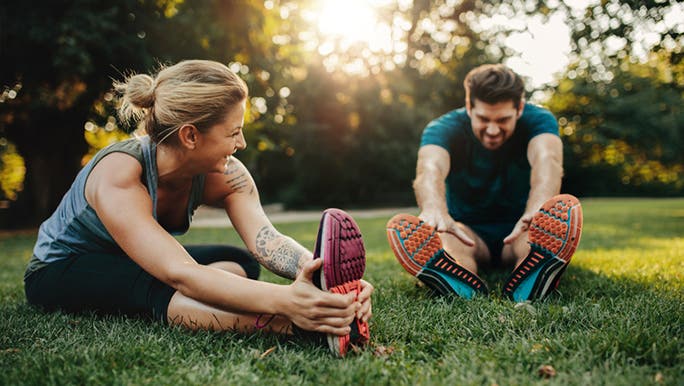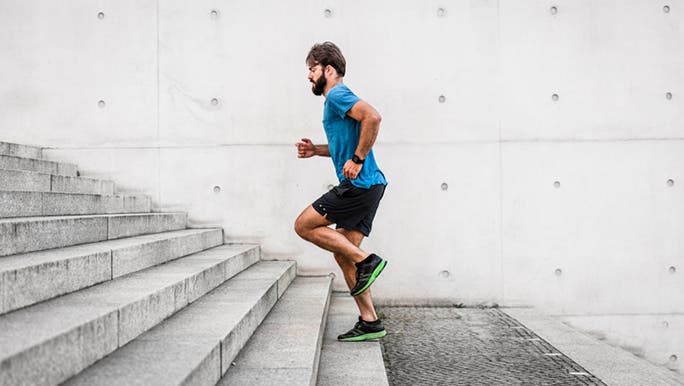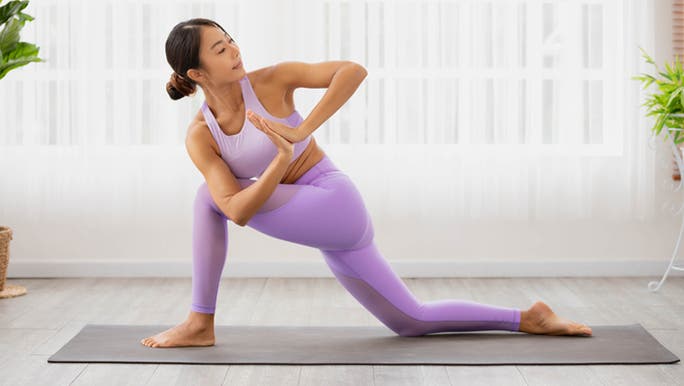Curious about the best exercise to do when trying to conceive? Here’s what you should know

Key Points
- Exercise is a great way to stay healthy during your fertility journey
- Being active can help lower your stress levels when trying to conceive
- Avoid any sport or activity that poses a high risk of injury to you or your baby
- Visit your GP if you’re concerned about your exercise regime
People on a fertility journey are often nervous about what they should and shouldn’t do. So, what’s the best exercise when you’re trying to conceive? Should you be riding a bike? Should you continue to go to the gym?
We’re taking a look at the research and, with the help of GP Dr Jill Gamberg, chatting all things exercise and fertility.
Spoiler alert: exercise can be a great fertility tool. There’s evidence that moderate exercise may benefit fertility.
But, as always, there are important details to consider. Let’s take a look.
Can exercise help with fertility?
Research suggests that moderate, regular exercise positively impacts fertility. It may also help to improve quality of life and emotional wellbeing in both women and men.
These outcomes are independent of factors like paying attention to your weight, meaning that exercise alone is beneficial, regardless of its effect on body fat.
What is the best exercise when you’re trying to conceive?
When it comes to fertility and fitness, what types of exercise are best?
“The safest thing to do is just assume you’re pregnant and act the way that you would if you were,” says Dr Jill. “Once you fall pregnant, any exercise you were already doing is generally safe to do, so long as it’s low to moderate impact and intensity.”
Some low-impact exercises to try include:
- swimming
- yoga
- outdoor walks and hikes
- strength training
- low-to-moderate weights
- Pilates
- stretching
Exercise and fertility: it’s also about the mind
According to the Fertility Society of Australia, exercise may help reduce symptoms of mild anxiety and help improve self-esteem in women experiencing infertility.
“When you’re trying to conceive, it can be a stressful time,” says Dr Jill. “We know that exercise can help lower stress levels and make people more relaxed.”
This is especially important, as recent research has identified a link between psychological interventions for lowering distress and notable increases in pregnancy rates.

Men need to be careful about the types of exercise they choose so as not to adversely affect sperm count
Exercise to avoid when trying to conceive
Not all exercise is created equal: when it comes to exercise and fertility for women, there are some things you should avoid.
This isn’t necessarily because they can affect fertility, but because they may be uncomfortable or risky for pregnant women:
- lifting heavy weights
- collision sports like martial arts, soccer and basketball
- sports that involve implements, such as hockey or cricket
- sports that could involve falling, like horse riding or skating
- sports that involve over-stretching or a high level of agility, like gymnastics
- anything that’s likely to make you overheated or dehydrated
“In a nutshell, any sport or activity that poses a high risk of injury to mother or baby should be avoided in all phases of your pregnancy, including trying to fall pregnant and in the postnatal period,” she says.
Exercise and fertility for men
Because the male contribution is a little more straightforward, Dr Jill advises that there are only a couple of exercise-related considerations.
“Firstly, intense physical activity may affect sperm count. Secondly, elevated temperatures may affect semen quality, so avoid exercise that overheats the scrotum.”
Do exercise recommendations change for people undergoing IVF?
Dr Jill says that people undergoing IVF are sometimes experiencing higher levels of stress.
“Exercising may help IVF patients with their physical and mental health,” she says.
While going through IVF, Dr Jill advises following the same exercise recommendations for anyone trying to fall pregnant, or talk to your healthcare professional if you have any concerns.

While body fat percentage may affect fertility, it’s important to focus on exercise for general health and happiness and not just weight loss when trying to conceive
Can too much or too little exercise affect fertility?
A lot of the information regarding exercise and fertility focuses on reducing body fat, rather than how exercise actually affects fertility.
In saying that, body weight can affect fertility – and in some cases, exercise may play a role in addressing that. Just as paying attention to the signs of ovulation when you’re trying to conceive, you may wish to consider whether your body fat percentage may affect your fertility.
“If you are underweight or overweight, then you may have additional challenges with fertility,” says Dr Jill.
For women with a low percentage of body fat
Women with a low percentage of body fat – such as some professional athletes or those experiencing eating disorders – can often stop menstruating, which is a sign that your body isn’t ovulating. With lack of ovulation accounting for around 30% of female infertility, it’s possible that putting on weight may help. It may be good to consider following a diet that supports fertility with the guidance of a GP or dietitian.
There’s also some evidence that excessive exercise may adversely affect fertility, but the relationship between exercise and ovulation is complex and there are currently no clear recommendations.
Fertility benefits of exercise for women with a high percentage of body fat
Dr Jill advises that women on the heavier side may experience hormone changes that could affect fertility and ovulation.
Research suggests that for those who wish to, leading an active lifestyle and reducing body weight through regular exercise may support fertility more so than sedentary lifestyles. But, in terms of data, exercise appears to have beneficial effects on fertility, regardless of what the numbers say when you hop on the scale. So the link between exercise and increased fertility isn’t necessarily dependent on weight loss.

When it comes to exercise and fertility, the key is to enjoy it and don’t overdo it
Moving your body is always a good idea
Often when it comes to health research, there can be conflicting findings. The more you dive in, the more at odds the outcomes can seem.
But when it comes to exercise and fertility, there’s a clear message: exercise is almost always a good idea. Just don’t overdo it.
If you have any concerns about your fertility journey, schedule a visit to your GP. For tips on good nutrition to support fertility, see our ways to eat – focus on fertility program. If you suspect you may be struggling with an eating disorder, speak to your GP or talk to someone from the Butterfly Foundation on 1800 334 673.
Other support services for those on the fertility journey:
- COPE - Centre of Perinatal Excellence.
- The Pink Elephants Support Network - for miscarriage & early pregnancy loss support.
- PANDA - for support for all parents during pregnancy and post-partum.
- Gidget Foundation - for support before, during and after pregnancy.
- Together We Wait - for support for those undergoing fertility treatments such as IVF.
Related:
- How to ease into a fitness routine after a break
- Does it really matter how many steps you walk per day?
- Why core strength matters and how you can build it
Dr Jill Gamberg is a General Practitioner and Lifestyle Medicine Physician, with a Masters in Coaching Psychology. Dr Jill’s goal is to help prevent disease, improve health literacy and maintain psychological and physical wellbeing with evidence-based practice.
Reviewed by the healthylife Advisory Board December 2022.
This article is for informational purposes only and does not provide medical advice, diagnosis or treatment. Any information published on this website or by this brand is not intended as a substitute for medical advice. If you have any concerns or questions about your health, you should consult with a health professional.